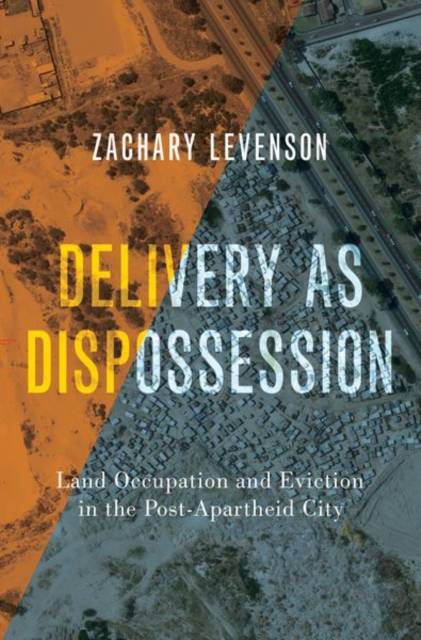
- Afhalen na 1 uur in een winkel met voorraad
- Gratis thuislevering in België vanaf € 30
- Ruim aanbod met 7 miljoen producten
- Afhalen na 1 uur in een winkel met voorraad
- Gratis thuislevering in België vanaf € 30
- Ruim aanbod met 7 miljoen producten
Zoeken
€ 49,95
+ 99 punten
Uitvoering
Omschrijving
A sweeping historical and political analysis with detailed ethnographic fieldwork of the politics of everyday life in postcolonial Africa. In post-apartheid South Africa, nearly a fifth of the urban population lives in shacks. Unable to wait any longer for government housing, people occupy land, typically seeking to fly under the state's radar. Yet in most cases, occupiers wind up in dialogue with the state. In Delivery as Dispossession, Zachary Levenson follows this journey from avoidance to incorporation, explaining how the post-apartheid Constitution shifts squatters' struggles onto the judicial register. Providing a comparative ethnographic account of two land occupations in Cape Town and highlighting occupiers' struggles, Levenson further demonstrates why it is that housing officials seek the eviction of all new occupations: they view these unsanctioned settlements as a threat to the order they believe is required for delivery. Yet in evicting occupiers, he argues, they reproduce the problem anew, with subsequent rounds of land occupation as the inevitable consequence. Offering a unique framework for thinking about local states, this book proposes a novel theory of the state that will change the way ethnographers think about politics.
Specificaties
Betrokkenen
- Auteur(s):
- Uitgeverij:
Inhoud
- Aantal bladzijden:
- 296
- Taal:
- Engels
- Reeks:
Eigenschappen
- Productcode (EAN):
- 9780197629253
- Verschijningsdatum:
- 6/05/2022
- Uitvoering:
- Paperback
- Formaat:
- Trade paperback (VS)
- Afmetingen:
- 150 mm x 224 mm
- Gewicht:
- 408 g

Alleen bij Standaard Boekhandel
+ 99 punten op je klantenkaart van Standaard Boekhandel
Beoordelingen
We publiceren alleen reviews die voldoen aan de voorwaarden voor reviews. Bekijk onze voorwaarden voor reviews.











